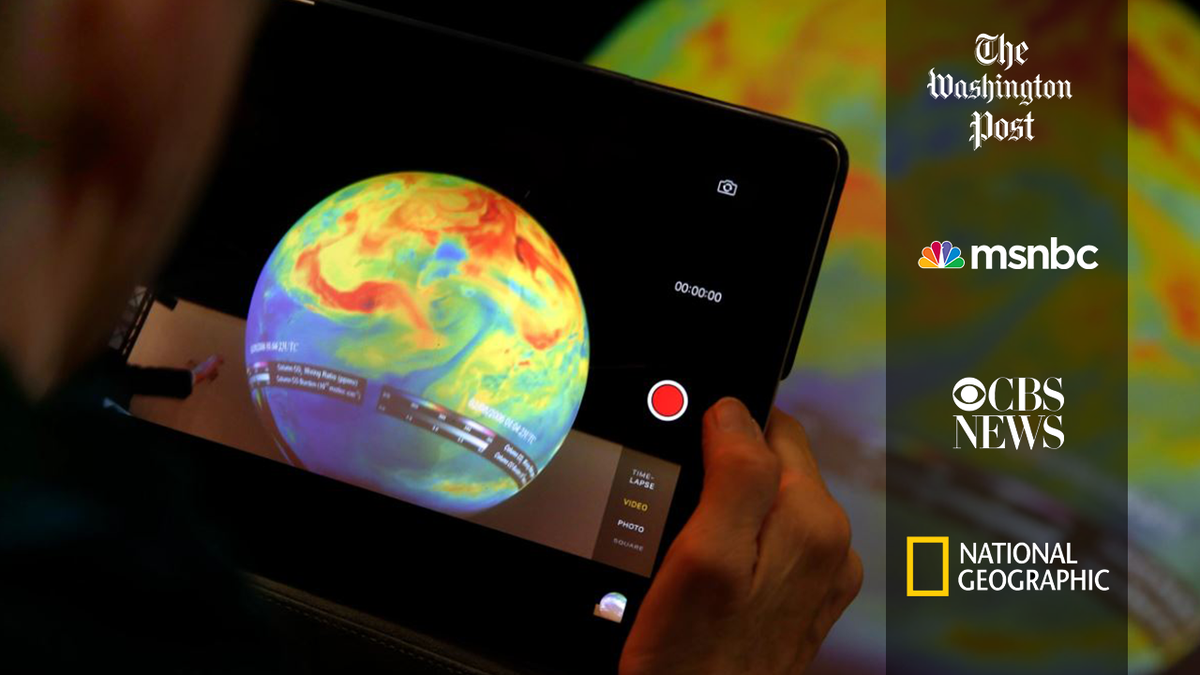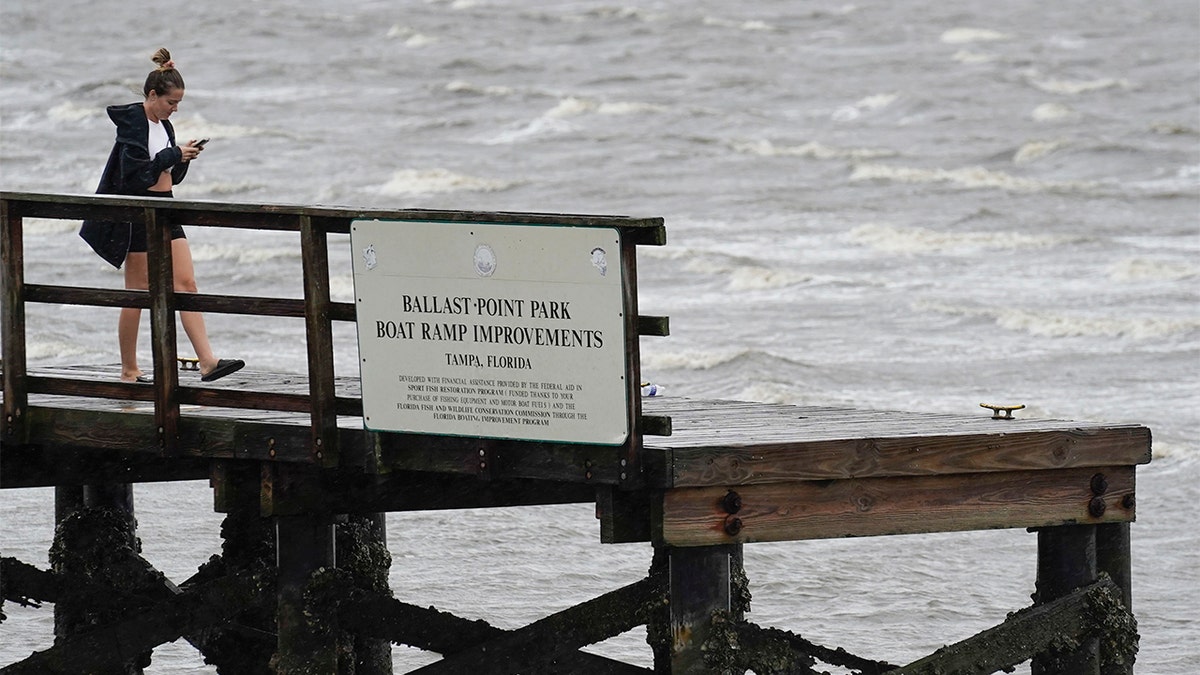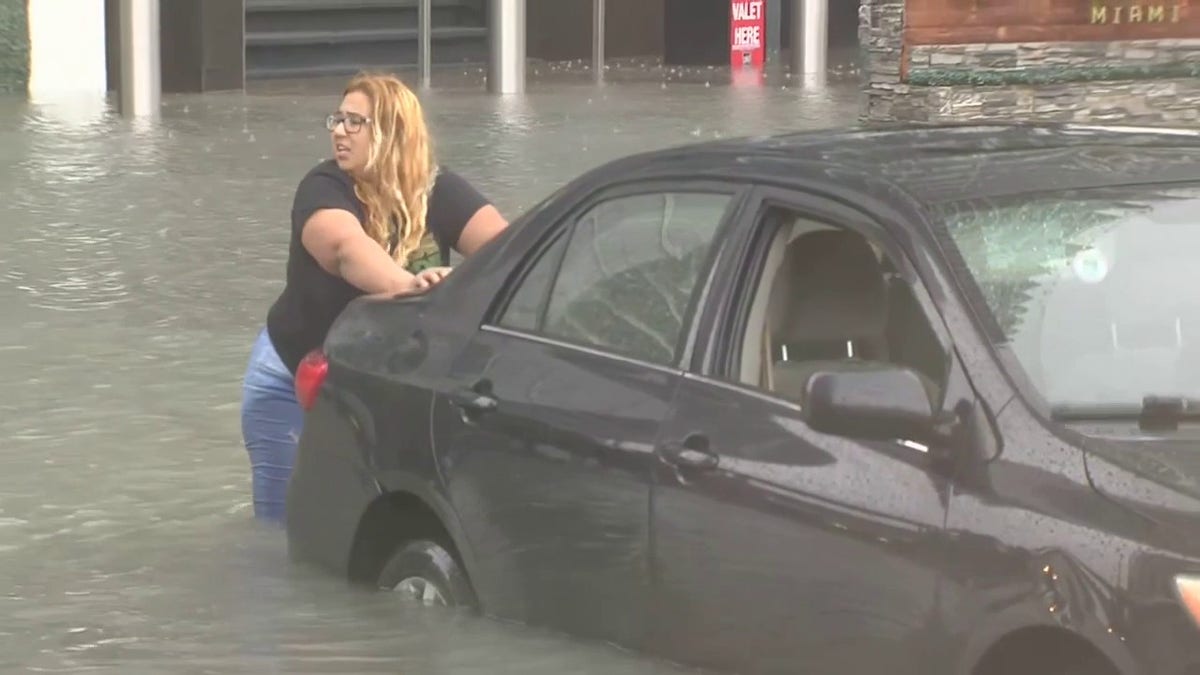Rep. Michael Waltz slams Biden for climate change remarks: 'This is petrifying'
Rep. Michael Waltz, R-Fla., joined 'Fox & Friends First' to discuss Pakistan-linked militants using American weapons and Biden claiming climate change is a bigger threat than nuclear weapons.
Daniel Aldana Cohen and Samantha Schuyler provided arguments regarding the question "Should We Start Preparing for the Evacuation of Miami?" in a piece for The Nation on Friday.
Cohen, a UC Berkeley sociology professor, offered the main argument in support of evacuating the major Florida city to both help Floridians and "force municipalities across the United States to get serious about hosting climate migrants in egalitarian ways."
"It’s urgent for governments and social movements to start planning for millions of people to land in new places. Prepping Miami’s evacuation is a perfect starting point. Its residents are a multiracial, multinational, and multigenerational assemblage that spans the class spectrum. Tragically, many of them are already climate migrants—like Puerto Ricans displaced by recent hurricanes," Cohen said.

A woman takes a picture of a globe at the U.N. climate conference on Dec. 7, 2015, in Le Bourget, north of Paris. (AP Photo/Christophe Ena)
He continued, "If cities around the country were forced to plan how they’d integrate arriving Miamians into communities flush with public green investment, they’d get a head start on planning for climate migration generally. This would also trigger conversations about zoning for density, enshrining tenant rights, upgrading infrastructure, taxing the rich, building green banks, and battling racism and police violence."
Cohen further criticized the U.S. for taking part in what he referred to as "racial violence" for failing to properly relocate citizens.
"And yet, right now, the U.S. doesn’t have a just—or even functional—policy for immigrants and refugees. It’s still struggling to support Indigenous communities facing displacement from environmental calamities caused by colonial settlers. And the US has handled domestic movements for freedom terribly. In the last century, the emancipatory promise of the Great Migration was savagely curtailed by segregation and mass incarceration. Leading sociologists and scholars of environmental injustice called this racial violence a form of apartheid. Today, a surge in climate displacement threatens to deepen this eco-apartheid," Cohen wrote.

A woman looks at her phone on the Ballast Point Pier on Tampa Bay in Florida ahead of Hurricane Ian, Sept. 28, 2022. (AP Photo/Chris O'Meara)
Although Schuyler, The Nation’s research director, argued against evacuating Miami, she instead argued to further adapt coastal cities to prepare for climate disasters.
MIAMI MAYOR FRANCIS SUAREZ: AMERICA NEEDS ‘GENERATIONAL LEADERSHIP AND A POSITIVE MESSAGE’
"Shortsighted, surface-level adaptations aren’t going to save metropolises like Miami; we need to reimagine coastal living. The United Nations estimates that over 1 billion people live in low-lying cities vulnerable to coast-specific climate hazards," Schuyler wrote. "Miami, therefore, has a lot of work to do. So far, the metro area’s attempts at resiliency have been green-lighted and financed in such a halting, disjointed, and uncoordinated way that they have resulted in a faulty patchwork of projects."
She also conceded, "At some point, if South Florida doesn’t change its approach to navigating climate change, evacuation will be necessary. But by withdrawing from Miami too soon, we will lose a vibrant city that could have become a training ground for learning how to adapt to the planet’s future. It’s not just South Florida that is facing climate catastrophe; it’s Los Angeles, New York City, Mumbai, and many other places. Tremendous human effort created Miami, and if we act soon, that kind of effort can save it too—and show the world how it’s done."

A woman pushes her car through floodwaters in Miami as a tropical depression swept over South Florida on June 4, 2022. (Fox Weather)
CLICK HERE TO GET THE FOX NEWS APP
As recently as October, mainstream media touted climate change as a threat to Florida, particularly after the state faced Hurricane Ian. Fox News Digital recounted more than 600 uses of the phrase "climate change" between the one-week period of Sept. 26 and Oct. 2.

